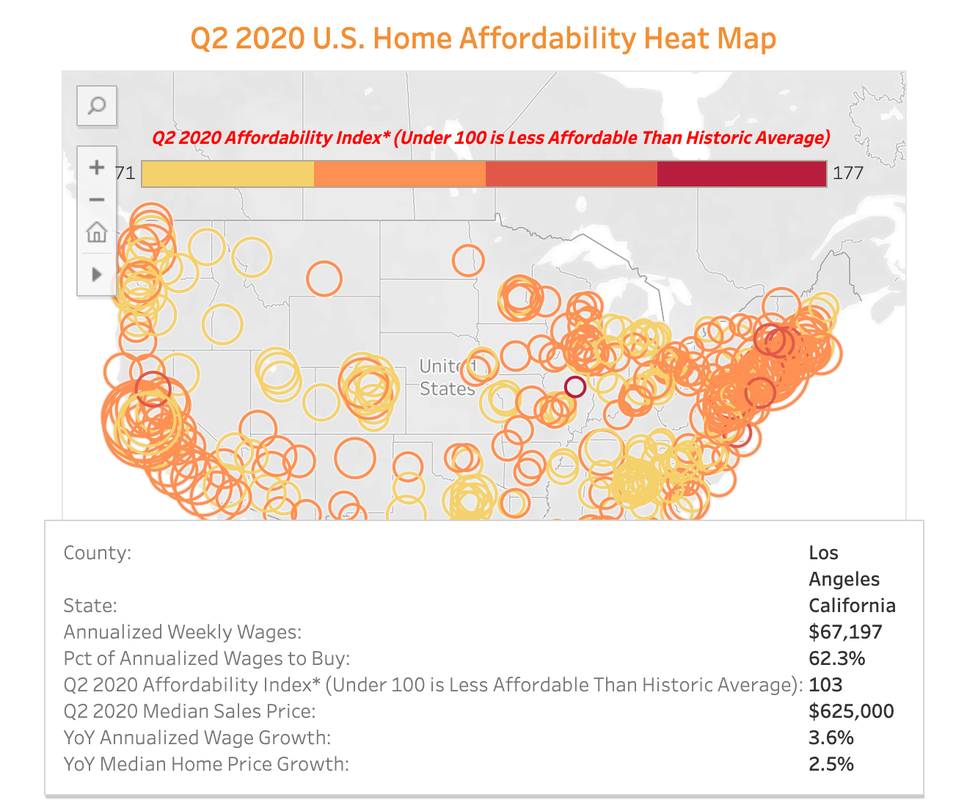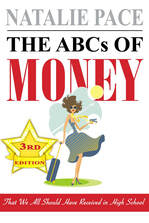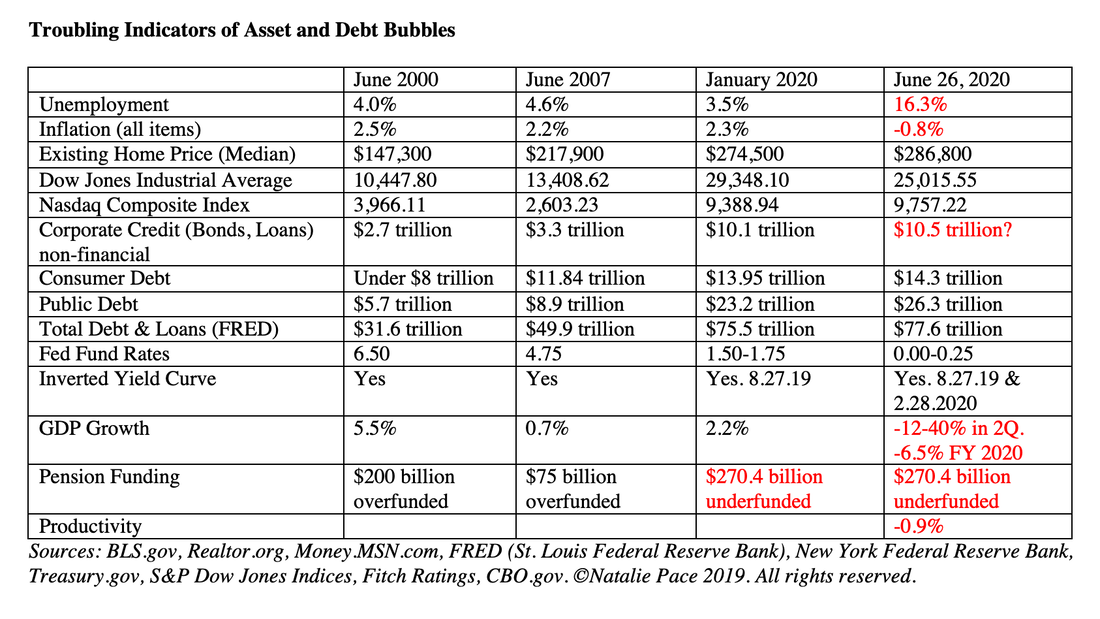|
Homeowners, mall operators, landlords, Airbnb hosts, commercial real estate, hoteliers and would-be buyers: know the facts about real estate in a post-pandemic world. We are in a recession. The 2020 GDP contraction is predicted to be -6.5%. Almost 33 million Americans claimed some sort of unemployment last month. Real estate prices are back to all-time highs. Housing is unaffordable in 74% of the major U.S. cities. If you want to buy a home in Los Angeles, California, the average worker would need to devote 62% of her wages to do so. In the Great Recession, home prices in the areas that were the most bubblicious saw real estate values plunge by half. The most severe losses were suffered by homeowners in Florida, Arizona, Nevada and Stockton/Bakersfield, California. Detroit, Michigan and other areas that were suffering from high unemployment and job losses were negatively impacted. Nationwide, average losses were 25%. No matter what you own, or what you are considering buying, it’s very important to ask yourself the following questions, and to formulate your best real estate plan now. 8 Important Questions for Real Estate Owners and Buyers Did you purchase your home or office building within the last few years? Are you spending more than 30% of your income on your home mortgage? Is your home or office building producing income? Is there a way for your home or office building to produce income? Have you considered the reality of a post pandemic world in your business model? Do you owe more on your real estate than the value? Did your loan modification put you severely underwater? Are you thinking of purchasing a home or real estate? And here is more color on each question… Did you purchase your home or office building within the last few years? If you purchased your home, or real estate of any kind, in the last few years, then you paid a premium price. If real estate prices weaken and your home or real estate is carrying a mortgage, then you could owe more than it is worth. That makes you very vulnerable. If you want to or need to sell the asset in the years to come, you may be unable to do so. You might be locked in for a very long period of time making payments, unable to take advantage of lower prices or new opportunities, waiting for a recovery of your losses. Successful investors care about price. A winning investment requires that you buy low enough that it has a chance to increase in value. While this may seem obvious, and it is certainly a well-worn aphorism, over the past few years many people have been derelict in their duty of pricing. The quicker that you extricate yourself from a money losing proposition, the better. Wisdom and a time-proven plan are always a better strategy then blind faith, prayers and hope. Are you spending more than 30% of your income on your home mortgage? According to Attomdata.com, 74% of U.S. cities are unaffordable to the people who live there. That means that you’d have to spend more than 28% of your income to purchase your own home. If you were already spending above your means before the pandemic, you’re even more vulnerable now – particularly if your income has been negatively impacted. Housing has been unaffordable for a few years for renters and for homeowners, so it is understandable how so many have been suckered into buying high and purchasing more than they can realistically afford. That gives the real estate and mortgage salesmen a good commission. So, what can you do to put the money back into your own pocket? Intergenerational housing is on the rise. Having each family member live in their own small dwelling is much more expensive than putting the group together under one roof – even if that means getting a bigger place. The savings on lodging are tremendous. However, everyone also saves a lot on food, electricity, Internet and entertainment. When we address the housing situation as a larger family unit, everyone wins. Is your home or office building producing income? Income-producing real estate that is either paid off or that you purchase for a good price, and is producing an annual yield of 18% or more, can be very valuable now, and in the years ahead. Hard assets will hold their value better than paper assets. Passive income will help to tide over any gaps in earned income. As we get closer to retirement, this becomes essential. However, if we’re going to own income property, we will need to consider a post-pandemic world. Commercial real estate is suffering from the Work From Home trend. Residential real estate owners may have tenants who can no longer afford to pay their rent. It will be difficult to evict the non-paying tenants until the pandemic is over. Courts are closed and/or backlogged. There may be a temporary moratorium on evictions in your area. So, what needs can your property address? Who is the perfect tenant who can and will pay their lease/rent on time? What would an active Boomer, or someone employed in the tech industry, want out of their home? Is there a way for your home or office building to produce income, considering a post-pandemic world. If:
Then rethinking everything, and tossing out the conventional wisdom, can yield the best solution. The low hanging fruit for most housing stress is intergenerational housing, which is why we are seeing such an increase in this trend. As I said earlier, it is very inefficient for each person to have a small housing unit that includes a full kitchen and dining area. When you combine everybody in one large house, the area that each person has privately can actually be more majestic, spacious and perhaps even more private than what they are getting by with and spending through the nose for. By pooling the family assets, and moving into an estate big enough for everyone to enjoy, each family member could potentially have more money in their pocket. Rather than producing income, this solution keeps your hard-earned money in your own home. The ROI shows up in bills that are eliminated, and a monthly budget that now has room for fun, vacations and investing. When you stop making everyone else rich, including the landlord, the utility company, the TV/cable/entertainment provider, with additional savings on food, there is a lot more dough for things that make life worth living. If you own a mini mall, an office building, a boutique hotel or a bed-and-breakfast, then rethinking the usage and income stream for the next few years, at minimum, could be your saving grace. What worked last February may not work in July, or even in 2021. If you would like ideas or business strategies for a post pandemic world call 310-430-2397 or email [email protected]. Do you owe more for your real estate than the value? Did your loan modification put you severely underwater? If you are highly leveraged on your home or any other real estate, the time to consider your options is now. If real estate values drop, then your options become very limited, and you might be stuck paying off an over-priced asset for decades to come. You won’t be able to move. You won’t be able to sell. It may limit your job opportunities, and perhaps even your ability to retire. If you are draining your retirement account to stay in a home you can’t afford or one that is underwater on the mortgage, then you need to face reality, preserve your life boat (your retirement accounts) and put some real solutions on the table. (I discuss this in greater detail in my book The ABCs of Money.) It’s important to acknowledge that the reason that most people do not buy low is because they can’t buy low. Too many people have their money tied up in an asset that has lost money. They can only hope and pray to recover losses. There is no money left to take advantage of low-priced opportunities. When that happens, the debt to assets ratio explodes, and the FICO score sinks. That limits your ability to borrow money. Seeking solutions for your real estate problem now could position you to sell high, preserve your liquidity, keep your FICO score high and research the kind of asset that will serve you best going forward, in a post-pandemic world. Are you thinking of purchasing a new home or other real estate? As I’ve already mentioned, real estate prices are back to all-time highs, and are unaffordable in 74% of U.S. cities. Buying high is never a good idea. In the Great Recession, the high for real estate was in 2006, and the low was in 2011. Banks don’t foreclose on all of the distressed property at once. So, it does take a period of time for real estate to bottom out. However, if you shop in the shadow inventory, then you might find extraordinary bargains – even today. If you are thinking of purchasing any kind of real estate today, you need to factor in all of the criteria already listed in this blog. The key mantra is that you want to purchase a “safe income-producing hard asset that you purchase for a good price, considering a post pandemic world.” The time you spend developing your plan and formulating an effective buy low strategy is time well spent. I discussed this and more in my Real Estate Video Conference on Thursday, July 9, 2020. You can watch it back on my YouTube.com/NataliePace channel. We spend one full day on real estate, what's safe and other hard assets at our Investor Educational Retreat. Call 310-430-2397 or email [email protected] to learn more. Click on the banner ad below for additional information on the Oct. 3-5, 2020 Online Financial Empowerment Retreat. "Many people, including educated men and women, often get into trouble when they neglect to follow simple and fundamental rules of the type provided [by Natalie]. This is why I recommend them with enthusiasm." Professor Gary S. Becker. Dr. Becker won the 1992 Nobel Prize in economics for his theories on human "College students need this information before they get their first credit card. Young adults need it before they buy their first home. Empty nesters can use the information to downsize to a sustainable lifestyle, before they get into trouble." Joe Moglia, Chairman, TD AMERITRADE. Other Blogs of Interest Copper and Chile Update. Gold Soars. Some Gold Funds Tank. Will the Facebook Ad Boycott De-FANG Stocks? Why Did My Cannabis Stock Go Down? Which Countries Are Hot in a Global Pandemic? Is Your Financial Advisor Good at Navigating Stormy Seas? $10 Avocados, Lies, Damn Lies, Statistics & Wall Street Secrets. It's Never a Crash. Work From Home and Intergenerational Housing. Biotech Races for a Coronavirus Cure. Are You Worried About Money? May is a Good Time for Rebalancing. Is FDIC-Insured Cash at Risk of a Bank Bail-in Plan? Why Did my Bonds Lose Money? Cannabis Update. Recession Proof Your Life. Free Videocon Monday, May 10, 2020. The Recession will be Announced on July 30, 2020. Apple Reports Terrible Earnings. We Are in a Recession. Unemployment, Rising Stocks. What's Going On? 8 Money Myths, Money Pits, Scams and Conspiracy Theories. 21st Century Solutions for Protecting Your Home, Nest Egg & Job. Wall Street Insiders are Selling Like There is No Tomorrow. Why Are My Bonds Losing Money? Tomorrow is Going to be Another Tough Day. Price Matters. Stock Prices are Still Too High. Should You Ride Things Out? 7 Recession Indicators Corona Virus Update. The Bank Bail-in Plan on Your Dime. NASDAQ is Up 6X. CoronaVirus: Which Companies and Countries Will be Most Impacted. Is Tesla Worth GM and Ford Combined. Artificial Intelligence is on Fire. Is it Time to Buy S'More? Take the Retirement Challenge. 2020 Investor IQ Test. Answers to the 2020 Investor IQ Test. The Cannabis Capital Crunch and Stock Meltdown. Does Your Commute Pollute More Than Planes? Are Health Care Costs Killing Your Budget? 2020 Crystal Ball. The Benefits of Living Green. Featuring H.R.H. The Prince of Wales' Twin Eco Communities. What Love, Time and Charity Have to do with our Commonwealth. Interview with MacArthur Genius Award Winner Kevin Murphy. Unicorns Yesterday. Fairy Tales Today. IPO Losses Top $100 Billion. Counting Blessings on Thanksgiving. Real Estate Prices Decline. Hong Kong Slides into a Recession. China Slows. They Trusted Him. Now He Doesn't Return Phone Calls. Beyond Meat's Shares Dive 67% in 2 Months. Price Matters. Will There be a Santa Rally? It's Up to Apple. Will JP Morgan Implode on Fairy Tales and Unicorns. Harness Your Emotions for Successful Investing. What the Ford Downgrade Means for Main Street. The Dow Dropped Over 1000 Points Do We Talk Ourselves into Recessions? Interview with Nobel Prize Winning Economist Robert J. Shiller. Ford is Downgraded to Junk. From Buried Alive in Bill to Buying Your Own Island. The Manufacturing Recession. An Interview with Liz Ann Sonders. Gold Mining ETFs Have Doubled. The Gold Bull Market Has Begun. The We Work IPO. The Highs and Hangovers of Investing in Cannabis. Recession Proof Your Life. China Takes a Bite Out of Apple Sales. Will the Dow Hit 30,000? A Check Up on the Economy. Red Flags in the Boeing 2Q 2019 Earnings Report The Weakening Economy. Think Capture Gains, Not Stop Losses. Buy and Hold Works. Right? Wall Street Secrets Your Broker Isn't Telling You. Unaffordability: The Unspoken Housing Crisis in America. Are You Being Pressured to Buy a Home or Stocks? What's Your Exit Strategy? It's Time To Do Your Annual Rebalancing. Cannabis Crashes. Should You Get High Again? Are You Suffering From Buy High, Sell Low Mentality? Financial Engineering is Not Real Growth. The Zoom IPO. 10 Rally Killers. Fix the Roof While the Sun is Shining. Uber vs. Lyft. Which IPO Will Drive Returns? Boeing Cuts 737 Production by 20%. Real Estate is Back to an All-Time High. The Lyft IPO Hits Wall Street. Should you take a ride? Cannabis Doubles. Did you miss the party? 12 Investing Mistakes Drowning in Debt? Get Solutions. CBD Oil for Sale. The High Cost of Free Advice. Apple's Real Problem in China: Huawei. 2018 is the Worst December Since the Great Depression. Will the Feds Raise Interest Rates? Should They? Learn what you're not being told in the MSM. Russia Dumps Treasuries and Buys Gold OPEC and Russia Cut Oil Production. Important Disclaimers Please note: Natalie Pace does not act or operate like a broker. She reports on financial news, and is one of the most trusted sources of financial literacy, education and forensic analysis in the world. Natalie Pace educates and informs individual investors to give investors a competitive edge in their personal decision-making. Any publicly traded companies or funds mentioned by Natalie Pace are not intended to be buy or sell recommendations. ALWAYS do your research and consult an experienced, reputable financial professional before buying or selling any security, and consider your long-term goals and strategies. Investors should NOT be all in on any asset class or individual stocks. Your retirement plan should reflect a diversified strategy, which has been designed with the assistance of a financial professional who is familiar with your goals, risk tolerance, tax needs and more. The "trading" portion of your portfolio should be a very small part of your investment strategy, and the amount of money you invest into individual companies should never be greater than your experience, wisdom, knowledge and patience. Information has been obtained from sources believed to be reliable. However, NataliePace.com does not warrant its completeness or accuracy. Opinions constitute our judgment as of the date of this publication and are subject to change without notice. This material is not intended as an offer or solicitation for the purchase or sale of any financial instrument. Securities, financial instruments or strategies mentioned herein may not be suitable for all investors. 25/11/2020 05:18:28 am
For having a proper maintenance of house, roof which should be in a sound quality. or you can consult trained carpet cleaners for maintenance or any type of roof service. 14/12/2020 05:31:26 am
If the roof of your house is facing damage, you can easily get it repaired by hiring professional roof repairers. They're experienced in this job and do it efficiently and quickly repair your roof. Comments are closed.
|
AuthorNatalie Pace is the co-creator of the Earth Gratitude Project and the author of The Power of 8 Billion: It's Up to Us, The ABCs of Money, The ABCs of Money for College, The Gratitude Game and Put Your Money Where Your Heart Is. She is a repeat guest & speaker on national news shows and stages. She has been ranked the No. 1 stock picker, above over 830 A-list pundits, by an independent tracking agency, and has been saving homes and nest eggs since 1999. Archives
July 2024
Categories |











 RSS Feed
RSS Feed